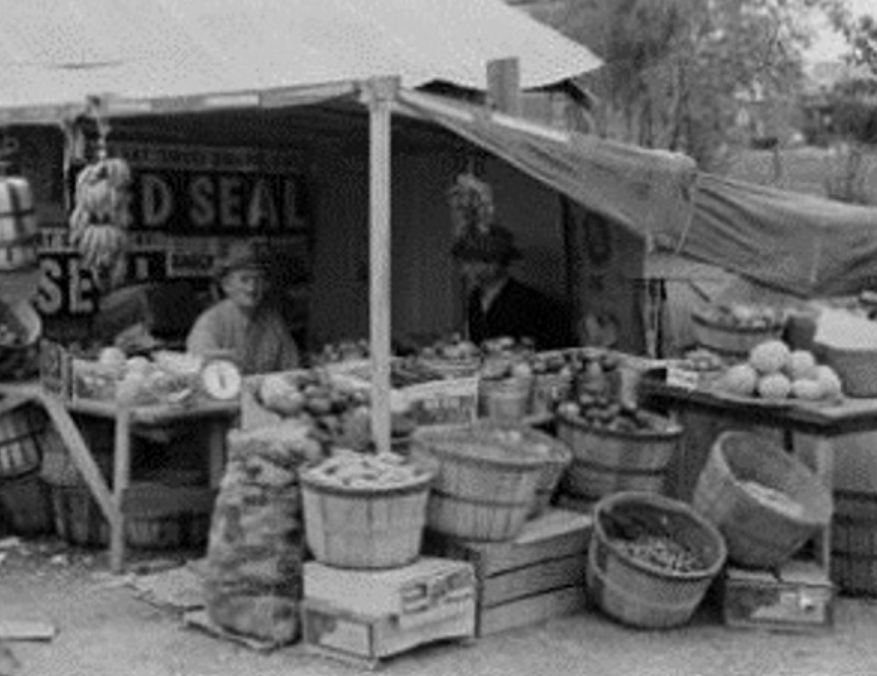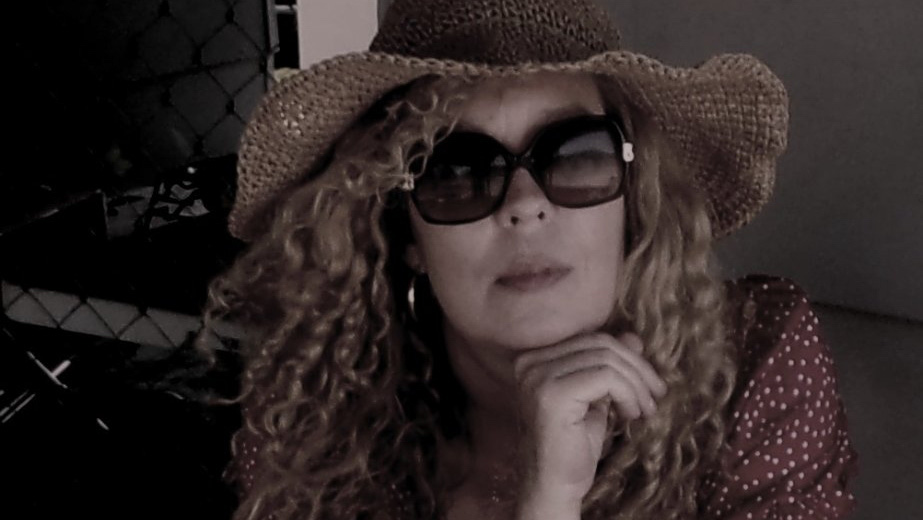
The story is told that Texas Ranger John Banister, while traveling by wagon along the road from Brownwood to San Angelo, met with a stranger heading the opposite direction. The two struck up a conversation, then disembarked while Banister brought out a watermelon he was carrying in the back of his wagon. The two men shared the melon under the shade of a roadside tree, and became fast friends for the rest of their lives in the process
I imagine the same sort of story has played out all over Texas for two hundred years or so, as Texas is famous for its large, delicious watermelons, and for the summer heat which makes both fine melons and people that appreciate them. While Banister was too busy catching bad guys and rounding up stolen cattle in the area to start a roadside fruit stand, the story seems in keeping with a seasonal business that has been drawing hot, thirsty customers to it for uncountable years. No one really keeps a record of this business as a business, so it’s hard to put dates or cite beginnings and endings for it. No doubt melons sold from the backs of wagons in Brownwood at the peak of the summer heat are a tradition stretching back to the beginning of the city, as is probably true for nearly every town in Texas.
Even today you can see pickup trucks, their beds loaded with watermelons, parked along the side of the highway or in parking lots in town. Growers selling directly to customers by simply hauling their produce to a spot where there is traffic is something you see all over the south, and it fills me with a happy nostalgia. There is something about buying a watermelon grown by your neighbors. It makes the world feel a little less impersonal, not quite as vast and overwhelming as it sometimes seems now. Maybe this way of selling food makes people a little bit closer to each other somehow. It’s a tradition that is probably as old as civilization itself, and traditions have power.
The buying and selling of local produce is a chance to stand and chat, to talk about the summer and the melon season, to maybe hear some stories of those things from the past. It’s a slow, hot Texas summer sense that comes over me when I stop at one. I want to know for how long the grower has raised melons, if their parents or grandparents before did the same thing, what kind of melons do best here and why. Open air fruit and vegetable stands create a sense of well-being among people I think. They remind me of the sound of a screen door slamming, the dirty hands my brothers and I had after digging up veggies in the garden after school, blazing hot church picnics where every kid’s face was covered in red, sticky juice and a big smile.
A local farmer’s market, rightly or wrongly, gives me that same sort of sense, that the food is fresh and clean. It’s grown by someone who cares about the community and whose family will eat it as well, not some far off corporate giant to whom customers are only numbers on a page. You won’t get a perfect melon from a roadside truck or a farmer’s market. You could see yellowish parts where it laid on the ground, the color and shape is not perfect either, and I like that too. It seems more real to me, less processed and packaged, more like a melon is meant to be, closer to a true summer ritual.
Some people say that the more an activity is repeated by people, the more memories are stored around it. Like corporate prayer and singing, traditional memory paths for human beings that are filled with positive experiences might be conduits for the good feelings those actions have created over the years and among many people. Whether or not that is the case, sharing a watermelon that is straight from the field on a hot summer day with friends and family seems to have a strong feeling of memory behind it, one that creates bonds while it relieves some of the longer, hotter days of summer.
***
Diane Adams is a local journalist whose columns appear Thursdays on BrownwoodNews.com
